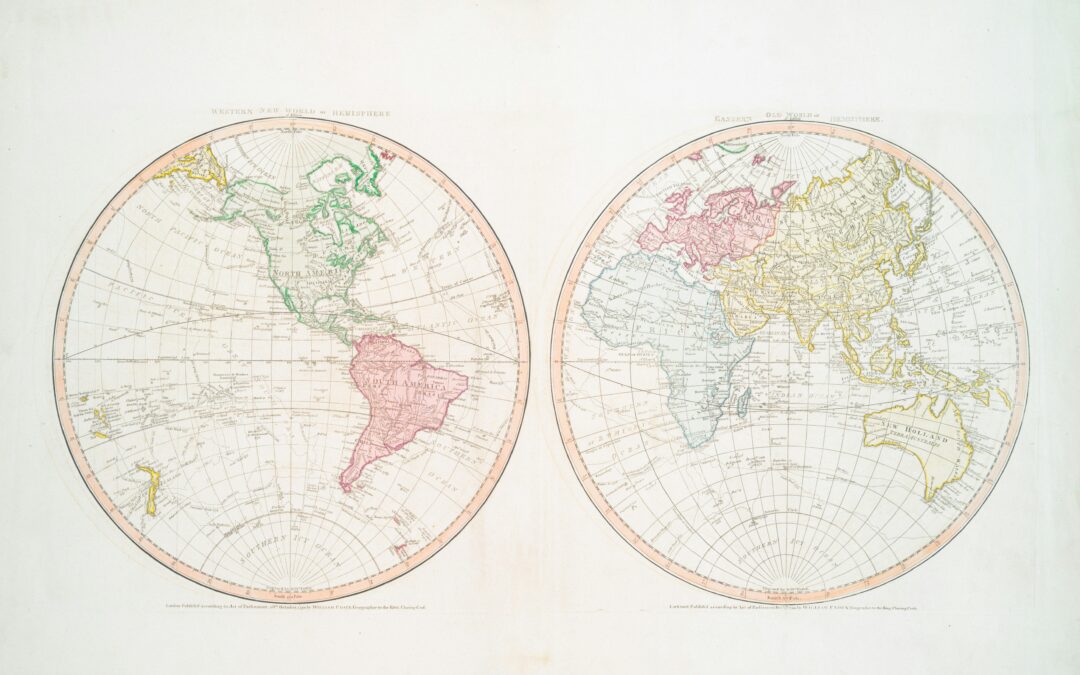In recent years, Chinese government officials have made several apprehensive statements about the prospect of engaging in arms control negotiations with the United States and Russia. The most recent of which, from Chinese Foreign Ministry spokesman Guo Jiakun, was no less apprehensive, but not nearly as definitive as portrayed by Western media.
Although disappointing for those of us who long for a world free from the specter of nuclear armageddon, Guo’s claim that “[it is] neither reasonable nor realistic to ask China to join the nuclear disarmament negotiations with the U.S. and Russia,” leaves room for interpretation. Taken at face value, Guo’s comment appears to signal a Chinese antipathy to disarmament. Already accused by some of leading an “Axis of Aggressors,” orthodox foreign policy analysts characterize Chinese non-engagement amid its nuclear expansion as part of a strategy to undermine and supplant the “U.S.-led global order.” To this point, China hawks in Washington sounded the alarm when the nation officially unveiled its achievement of a nuclear triad during its recent Victory Day Parade. From their perspective, this is reinforcing evidence of China’s nefarious intentions. This narrative rests upon a debilitating foundation of assumptions that make it more fiction than analysis. Unpacking these assumptions would be too time consuming for this essay.
Instead, I offer an alternative interpretation. Guo’s notably concise remarks are less a signal of antagonism to disarmament engagement with the United States and Russia, so much as they reveal apprehensions about the intentions of foreign leaders held by policymakers in Beijing. Hypothetically, how can they be confident that the United States, Russia or another nuclear weapons state will not try to exploit China’s willingness to compromise on arms control to undermine its security and sovereignty? These qualms, albeit natural in international relations, are uniquely shaped by China’s historical experience. Regardless of whether one agrees with Chinese invocations of the “Century of Humiliation” narrative, external analysis of their strategic behavior must consider its implications on how Chinese policymakers perceive their geopolitical environment. After all, characterizing their national experience in this period as humiliation indicates that it has been emotionally internalized within Chinese strategic culture and, thus, cannot be understated as a metric by which they formulate security policy. To this point, it reasons to note that this narrative emphasizes a relationship between foreign actors’ behavior and domestic turmoil. This does not require that we accept how they portray the intent of foreign actors. Rather, it encourages us to consider how our behavior may be misinterpreted beyond our efforts to frame them positively.
Viewing Guo’s statement through this analytical lens, it seems that the dominant position among Beijing’s foreign policy leaders is a preference for Washington and Moscow to lead the disarmament movement by example. Indeed, “the countries with the largest nuclear arsenals,” Guo urged, “should earnestly fulfill their special and primary responsibility for disarmament, further make drastic and substantive cuts to their nuclear arsenal, and create conditions for the ultimate realization of complete and thorough nuclear disarmament.” The suggestion being that the Chinese may be willing to participate in arms control negotiations only after the United States and Russia reduce their respective stockpiles to a level comparable to its own. For this to happen, however, is contingent upon whether Russia and the United States can reestablish a foundation of mutual respect in their relationship. Absent this prerequisite, confidence-building efforts to address key tensions in the relationship, such as the Ukraine conflict or relations with NATO, are unlikely to succeed.
China could play an active role in facilitating such reconciliation. The fact that Guo’s statement was in response to a journalist’s question from RIA Novosti, the Russian state-owned news agency, about President Donald Trump’s recurring comments on “denuclearization,” indicates Russian interest in knowing the Chinese position. If Trump and Russian President Vladimir Putin would like to overhaul their relationship while demonstrating their interest in disarmament, they could invite Xi to mediate their next round of negotiations on security issues. In return, they might leverage a successful outcome to secure transparency from Xi on the numerical limits of China’s nuclear expansion, which they could then use as the target range for their respective stockpiles in a new arms control treaty. Concurrently, the United States would need to scale-back its strategic posture in the Asia-Pacific region to signal that it no longer seeks to contain China, a critical source of tension which has negatively stimulated Chinese insecurities about foreign intent as discussed earlier. These efforts could be instrumental in creating the socio-political conditions to secure Chinese involvement in trilateral disarmament cooperation.
Some may critique my analysis as inadequate because I have avoided discussing Chinese nuclear capability advancements and strategic posture alterations. Likewise, others will doubtlessly assert that I am naively optimistic in suggesting the U.S.-Russia bilateral relationship can be stabilized, citing the perceived immutability of structural tensions. Such dogmatic scrutiny is no more novel than it is orthodox. While I submit that political-institutional tensions and socio-material factors are relevant, I reject the notion that they are the determinants of international relations. To accept as much would be equivalent to abjuring the centrality of individual agency in the decision-making process. This fact is evidenced in the concept of international relations. Emanating from the Latin root “relatio,” meaning a connection, the contemporary English noun “relation” is used to identify the connection between two or more concepts (institutions/structures/ideas), objects (materials), and/or people. The adjective “international” merely denotes the concept’s more precise description of connections across national boundaries. But as concepts and objects are inanimate they must be understood as functions of a connection between people. It is consciousness that catalyzes our ability to experience the world, not solely existence. Therefore, human consciousness is the crucial determinant in the equation to bestow meaning upon these concepts and objects. Without consciousness nuclear weapons would not exist; their danger is the product of conscious decisions to create and retain this technology.
Ending the threat of nuclear annihilation requires us to revolutionize how we understand the relationship between people, ideas and objects. Therefore, my analytical framework for reinterpreting Chinese nuclear apprehensions hinges upon an attempt to account for the importance of socio-cultural and psycho-emotional factors on individual perceptions. Ideas and objects matter most to the extent which individuals wield them. When, where, why and how they wield them is intrinsically shaped by experience and perception. Only through respecting the myriad factors that shape an individual’s thought processes can we begin to thoroughly understand one another.

Lucas Ruiz
Oppenheimer Fellow
Lucas is the inaugural Oppenheimer Fellow with the Oppenheimer Project, where he works on trilateral strategic engagement between the United States, Russia and China on foreign and nuclear policy. Previously, he was the Fall 2024 Herbert Scoville Jr. Peace Fellow with the Reimagining U.S. Grand Strategy Program at the Stimson Center. There, he worked on the Reimagining U.S. Diplomacy and Effective Defense Policy projects. His research interests are U.S. global power and nuclear weapons policy. Ruiz has been published in the Bulletin of the Atomic Scientists, Inkstick Media, The National Interest, Responsible Statecraft and through the Stimson Center, and has featured as a podcast guest. He earned his B.A. in History from the University of Connecticut.

